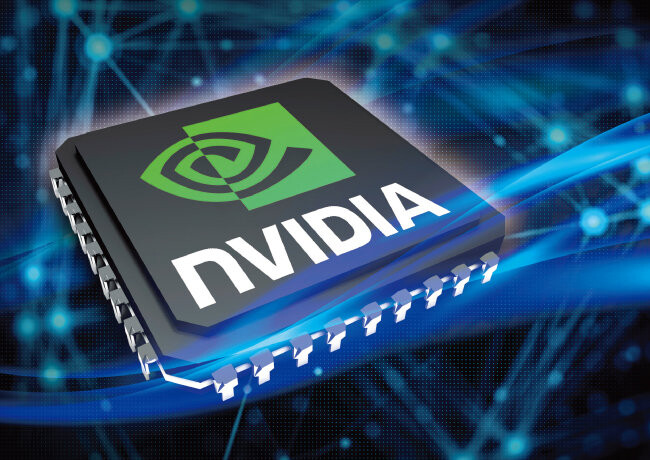
NVIDIA, a leader in the artificial intelligence (AI) semiconductor market, has released outstanding financial results that exceeded market expectations, dispelling recent concerns about a slowdown in AI chip demand. This earnings report signals NVIDIA's potential for continued strong growth.
NVIDIA announced revenue of $39.331 billion (approximately 56.7 trillion KRW) and earnings per share of $0.89 (approximately 1,280 KRW) for the last quarter (November 2024 to January 2025). Both figures surpassed the Wall Street average forecast compiled by market research firm LSEG, which predicted revenue of $38.05 billion and earnings per share of $0.84.
Last quarter's revenue increased by 78% compared to the same period last year, demonstrating remarkable growth. However, the quarterly growth rate was the lowest among the last seven quarters, indicating a slight slowdown in the explosive growth seen previously. NVIDIA forecasts revenue for the current quarter (February to April) to reach approximately $43 billion, a 65% increase compared to the same period last year.
Bloomberg News analyzed, "NVIDIA reported 'good but not great' quarterly results, and the reaction from investors accustomed to explosive performance was lukewarm."
NVIDIA's growth is attributed to massive investments in AI data centers by tech giants such as Amazon, Microsoft (MS), Google, and Meta. The data center AI chip sector, which accounts for the majority of NVIDIA's revenue, recorded $35.6 billion, a 93% increase from a year ago.
Notably, NVIDIA's latest AI chip, Blackwell, launched at the end of last year, achieved $11 billion in sales, marking a successful debut. NVIDIA CEO Jensen Huang expressed confidence in a conference call, stating, "Demand for Blackwell is tremendous," and "We will continue to grow strongly in 2025."
This earnings report is the first since Chinese AI startup DeepSeek announced that it had developed an AI model comparable to US Big Tech companies, despite using fewer NVIDIA chips. Following DeepSeek's announcement, concerns arose in the market that "the AI industry may reduce demand for NVIDIA chips." However, CEO Jensen Huang predicted that demand for NVIDIA chips will further increase as more companies engage in the development and utilization of inference AI models.
Huang explained DeepSeek's inference AI model, R1, stating, "Inference models require 100 times the computational power of general models, and future inference models will demand even more computation." In other words, the demand for NVIDIA chips is expected to further increase with the advancement of AI technology.
[Copyright (c) Global Economic Times. All Rights Reserved.]




























